About Project of URI, there are lots of discussions from Chinese EOS groups and communities. The following article is written by Guangshu who opposes to URI. After reading, It’s welcome to make comments at the end of the article. The article is translated by GEOS. Hope you to focus on GEOS and vote for EOS node: geosoneforbp.
The Ridiculous URI
BM envisages a project called "Universal resource Inheritance" --which levying a 5% annual tax on all resource holders around the world and then distributing it equally to everyone around the world. It corrects the current unreasonable property rights (resource allocation) system. For one thing, the poverty can be eradicated so that everyone lives above the Poverty line; On the other hand, the original property of the unreasonable possessors of wealth (mainly the rich who are incapable of creating wealth) can be redistributed after an entire generation.
BM believes that this is the most perfect and logical project of property rights. It can be implemented on EOS.
●What is your property?
You must be aware of the first question right now: Who has the right to levy taxes? Will the resource holders agree that you levy a 5% tax?
BM has thought the answer to this question early, levying the taxation is the system which is basic institution of it. Resource holders have no right to oppose the 5% tax increase because fundamentally they should not have 100% ownership of resources. It is ridiculous as people's possession of resources. Who owns the moon, who owns the ocean? Why Adam and Eve can decide all the resources allocated to the future generations? Do people have the right to open up oil and cut down the rain forest? People have no right to make such a decision.
If you check up our current system of property rights from a perfect perspective, you will find that its moral foundation is indeed problematic, at least it is too arbitrary. We regard that respect private property as the supreme moral, but all private property rights have their ignominious obtain at least once. How did the land become private? How was the country established? Even the subsequent inheritance system has become the subject of suspicion: your family's property has been handed down from generation to generation, why can you get it without any work?
If you're Chinese, you'll be nervous to read this because you're too familiar with this argument. The last time someone told you that you didn't have property rights, the result was that the country was almost destroyed which we've all suffered so far.
The key mistake of the argument lies in its misconception of property rights, we believe that property rights are absolutely based on goods (or space), and that the total amount of goods (or space) is limited, then the principle of force or First-come-first-served exclusive property rights are established, resulting in unfair distribution of property in essence. Actually, property rights are determined by behavioral boundaries. How do you understand this statement?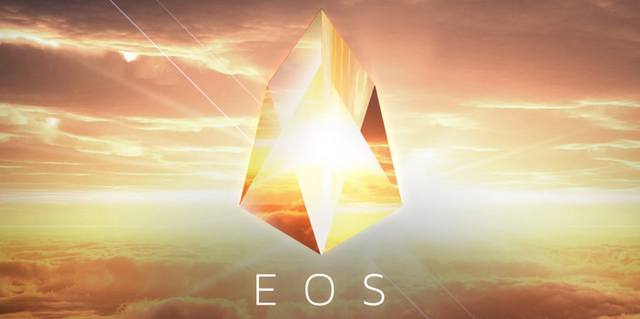
For example, you possess a seize of land, what does it mean?
Ten thousand years ago, you were a barbarian nomad, you would think that "owning a piece of land" was simply a nonsense. Because in your eyes, there is no land belonged to you and no land belonged to anyone else. Your understanding of owning a piece of land is that I can come here to graze when there is plenty of water and grass, but others can’t do this.
One thousand year ago, you were a farmer, you would think "owning a piece of land" was I could plant on this land, but others can’t, even in the drought years, you decided to abandon this land, anyone else can’t to do anything here without your consent.
Later, someone built a reservoir on the hill and diverted the water to every farmland, you find that because of others’ behavior, you lost the complete value of the land. Neighbors got the "right to water" from the reservoir, if you didn’t follow, your land can only rely on the God, the value of your land dropped deeply.
A hundred years ago, you decided to build a factory on your land, you find that your "property rights" were more limited and divided, "water rights", "noise rights", "pollution discharge rights", "lighting rights"...
Therefore, your property rights are determined by the society's confirmation of the "boundary of other people's behavior". With the changes of society and resource allocation, the development of production mode, the identification of the boundary of other people's behavior has evolved constantly which leads to the different connotation of your property rights.
If the boundary of people's behavior is uncertain for a certain object (or space), then the claim of property right is uncertain. At this time, the object (or space) is in the state of indeterminate。 It's like no one ever claimed that he has owned a river.
Once the boundary of behavior is defined by society, then there will be infinite uncertainties outside the boundary that may actually divide your property rights in the future. Even if someone in history claimed to own a river, the original owner of the river's property rights is infinitely divided by the long history of evolution. So there is no point in asking "who owns the moon" or "why did Adam and Eve decide the division of property for future generations". Neither would have the question that "someone who owns the moon can levy tax from the person who enjoys it", nor "wealth created by the moon can be possessed by a person and never be shared by the society."
There has never been an ultimate definition of property rights or the ultimate allocation of property. If we look at it statically, the property distribution system of each generation is unfair, but if we extend it to generations and even the whole history of mankind, we will find that it is very fair. We can only establish the exclusive boundaries of property rights by establishing the current behavioral boundaries. If I have one dollar, I think it's equivalent to the value given to it by the current wealth network (equal to an egg). If you use non-market ways to make more money that resulting that I have to pay 2 dollars to buy an egg, that's a 50% infringement on my property rights.
If it's true that how much EOS you have represents how much EOS rights you have, then EOS rights belong to every EOS holder, and any addition to EOS is diluting your rights. The 5% addition is not conditional private ownership, but conditional transfer from the holder. The so-called "the resource owners have no right to use up the resources" is completely nonsense, it is infringing on your property rights. Adding EOS without your consent is also an infringement on your property rights, no matter how magnificent the infringement is described, you have to keep alert naturally.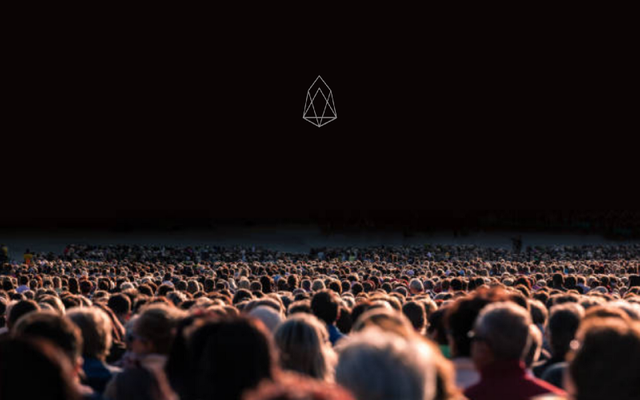
●Can URI eliminate poverty?
URI describes a society that seems to be common prosperity, with 75% of the middle class don’t need pay taxes at all (because their taxes are equal to their welfare), and some of the rich will consume all their wealth for a lifetime to subsidize the poor without any savings.
BM believes that under the URI system, every person would ideally receive a basic subsistence allowance every year so that all people can live above the poverty line, there will be no more poverty and hunger, and even under the URI system, the parents' property obligations (upbringing) for children may be abolished in the future.
Obviously, this is impossible.
We assume that URI will be implemented on EOS. It is entirely predictable that in the early stages, the network will expand rapidly and the limited wealth funds will be allocated to infinite demands. The value of wealth that everyone receives is minimal, not only it cannot eradicate poverty, even that nobody wants to get it. Unless the value of EOS rises by 23 thousand times rapidly, it can barely reach the international poverty line. For American poverty standards, EOS should rise by 210 thousand times, with a total market value of $1,000 trillion.
Arabian Nights!
However, BM said that it is an ideal. The future belongs to those who believe in the beauty of their dreams. After all BM is building the system on the basis of human generations, it’s too narrow to limit it with EOS.
But BM still thinks poverty too simple. Poverty is not a simple result, not an absolute number. Fundamentally speaking, it is unsolvable.
Objectively, the uneven flow of wealth information is a universal phenomenon. There is no universal principle for predicting purchasing power in each region, every time period and each different groups. The additional issuance to each person is impossible to guarantee the basic standard of living.
Subjectively, people also have different wealth information processing strategies, resulting that they are always in a poor state from the view of different perspectives, different periods of time. Even if we have just invented the concept of "absolute poverty" as a cover for poverty, we still cannot completely eliminate which involves all aspects of international politics, social governance, economic system, customs, law and so on.
Poverty can be alleviated but never can be eradicated.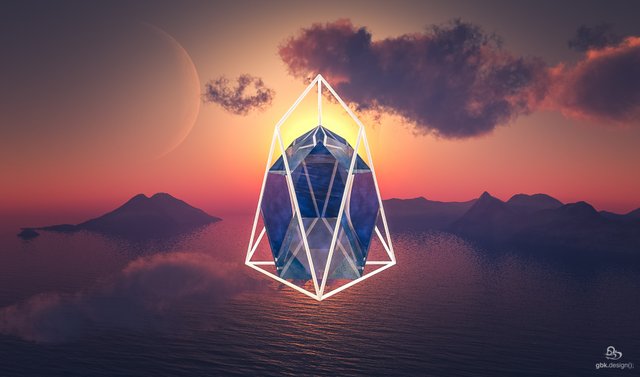
●How many people can endure the dilution of wealth?
A man named Cannon has 50 thousand EOS in his hand. Assuming he can't increase his EOS by making money on his own, he doesn't need to spend the 50 thousand EOS. Assuming that the future population will remain unchanged by 7 billion. Then under the URI system, his EOS will increase by a dozen in 100 years, but his original wealth purchasing power (to EOS) will shrink by 99.3% - this is BM's purpose. Could Cannon endure such an exaggerated wealth dilution?
Some people choose to believe it unexpectedly.
Most of BM's followers don't believe in his so-called perfect system of URI. They just sniff out the possibility of speculation from this wonderful story.
Their abacus is obvious: As a large number of new users pour into EOS, the scale of the network expands rapidly, bringing about the expansion of ecological value. The EOS value of all 300 thousand accounts is 40 yuan. If 7 billion people all over the world have EOS accounts, then EOS will usher in a skyrocketing state. In this case, URI is really a good deal.
In fact, What they want is only the demographic dividend at the initial stage.
What is the so-called demographic dividend? It is the difference between the growth rate of ecological value brought by the expansion of network scale and the extent to which wealth is diluted by the expansion. If the difference is positive, then the demographic dividend exists. If the difference is negative, then the demographic dividend disappears.
Will the demographic dividend always exist? The network scale can be expanded in an unlimited speed without restriction?
Assuming that URI brings 700,000 users in the first year, there will be one million people holding the EOS which means that each account can get 40 EOS in the first year, this inflation will not affect Cannon. On the contrary, Cannon believes that it will stimulate the next wave of people to register for EOS, thereby expanding the ecological value of EOS by more than 5% so that Cannon's currency may not depreciate or even soar.
Until now, Cannon is right.
But the question is, if there are only 1 million people in the world? After 100 years, every account will be distributed 130,000 EOS, Cannon's wealth will be diluted. If he has only 50 thousand EOS in his hand and doesn't make more money, his wealth level is only 50 thousand richer than the poorest people, not much higher than the poverty line.
Cannon may say no, how can you assume that there are only one million people EOS users in the world, EOS is awesome, everyone will like it, 7 billion people all around the world are the potential users of EOS! Stimulated by getting money for free, there will be waves of people participating in.
After careful calculations, Cannon thinks that EOS accounts will expand slowly when it gets X billion, and then he throws the EOS coins away at the high point and cashes out.
Would you agree that EOS would be distributed equally to all the people in the world without additional issuance with paying the tax of 5% each person per year?
BM knows that no one will agree to this plan, so he gives it a different name and make it a welfare system. His supporters hope that the URI is a system of self-production; Others know it is a tax system, but they don't want to pay 5% tax, they only want to make money when it skyrockets.
Sometimes, BM is very lonely.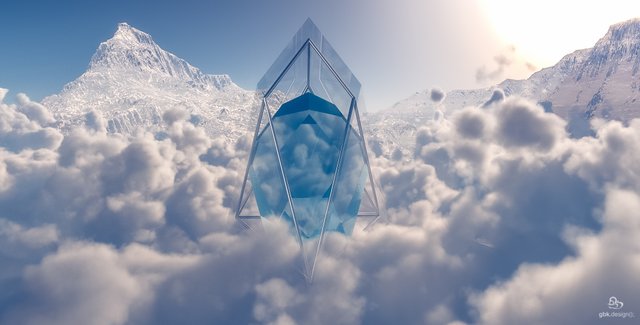
●Technologically speaking, Can URI be implemented?
To implement URI, a key technical problem is how to identify valid users accurately. If it cannot be solved, the system will become a teller machine for a specific group directly.
Even URI supporters who want to earn a demographic dividend are also worrying about KYC. Since this part of people is in the mainstream, it seems that the implementation of KYC in technology is the biggest problem whether URI will be implemented.
At present, KYC does not have a complete solution, of course, in my opinion, there will never be a perfect KYC under the chain to solve the worldwide population identification problem. KYC on the chain is also nowhere in sight.
But never underestimate the hardworking and imaginative of BM.
I regard URI as the "Everyone is mining", the block-chain genius BM will invent a Turing Machine called "God" to implement URI. It will recognize you as a person in front of a computer, and recognize that you have not been included in the URI system. When you pass away in the future, the "God Turing Machine" even can prove that you are dead, then cancel your qualification for mining. Only in this way can URI be implemented technically.
However, do you want your EOS turn to be URI coin?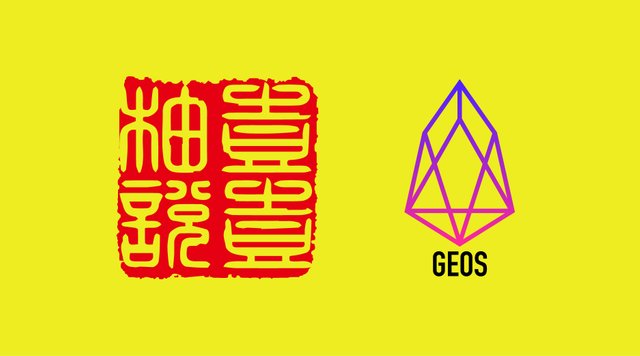
Excellent article!
This is an excellent critique of the 'property rights' school of thought. Property as a basis for society is fine until it isn't. Property is not a basis for all issues, and when those issues are paramount, trying to propetise them will just make them worse.
Downvoting a post can decrease pending rewards and make it less visible. Common reasons:
Submit